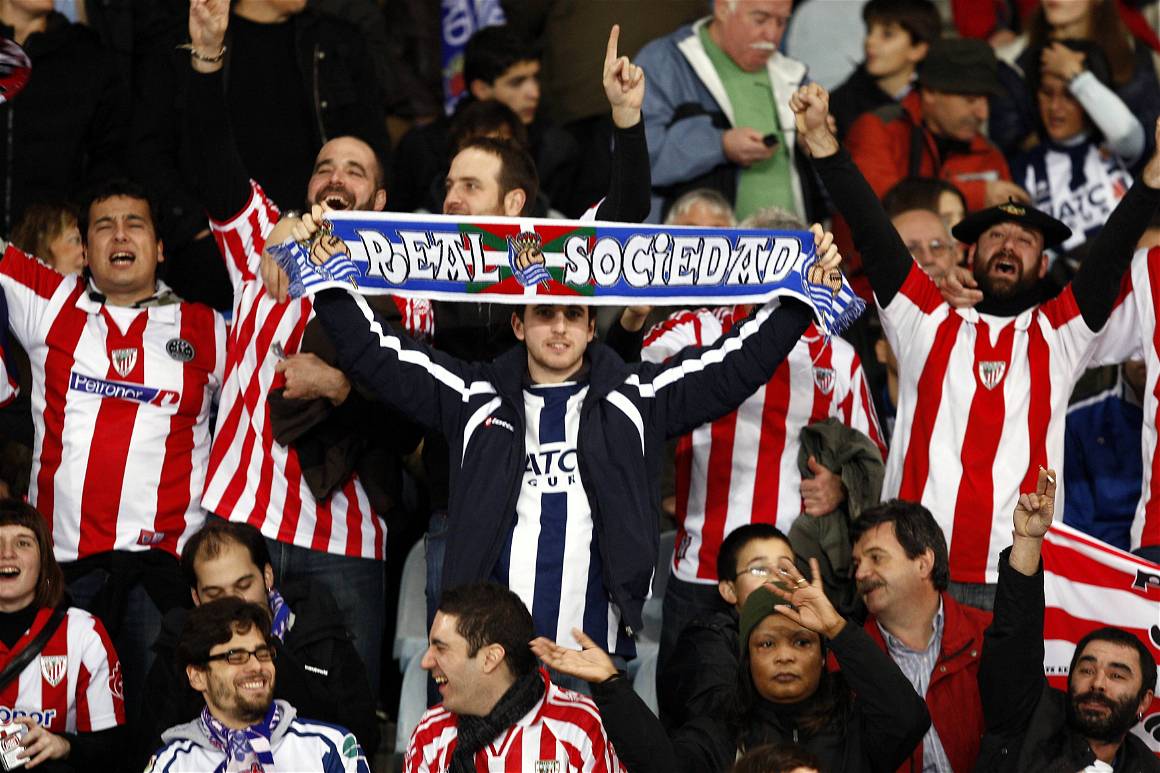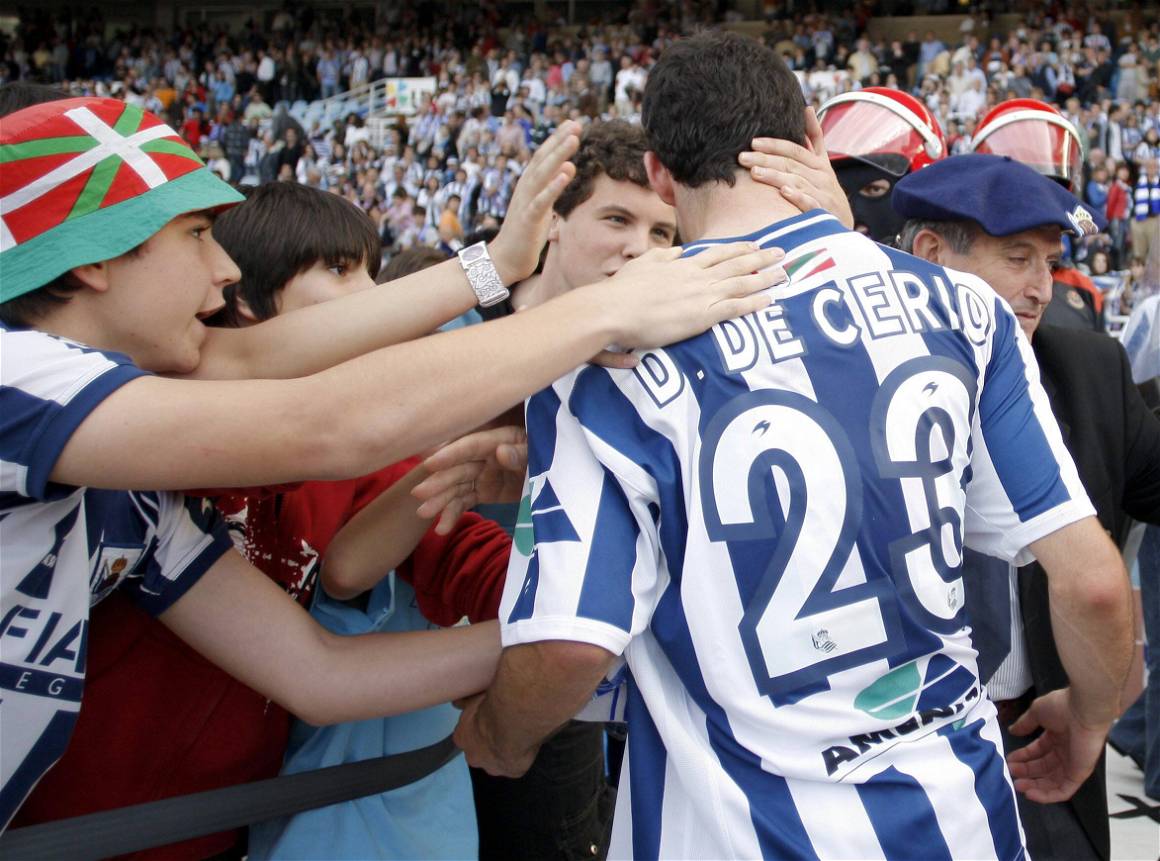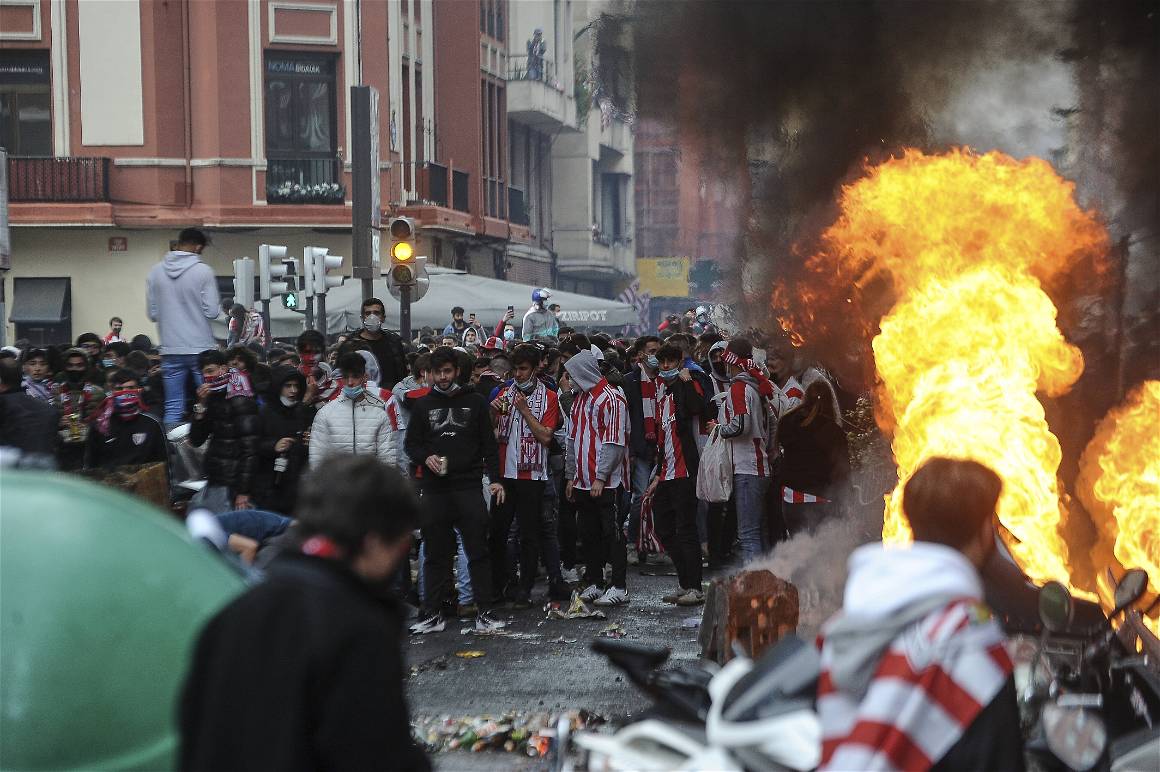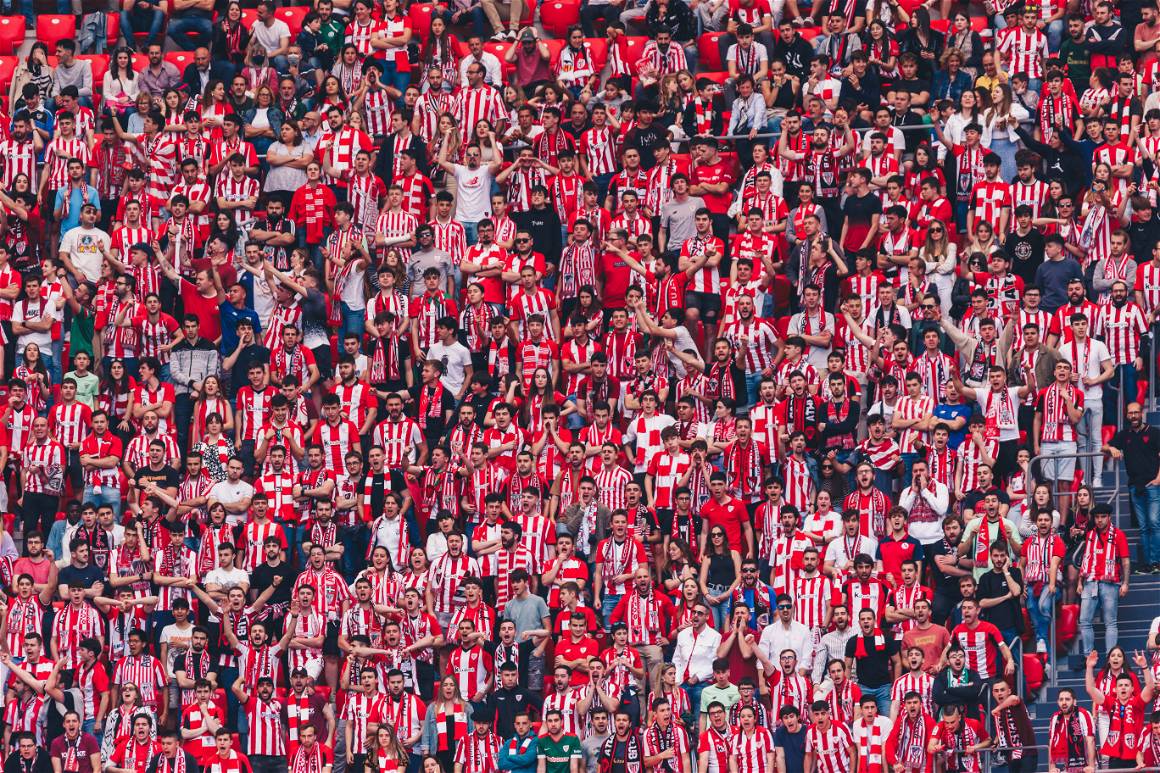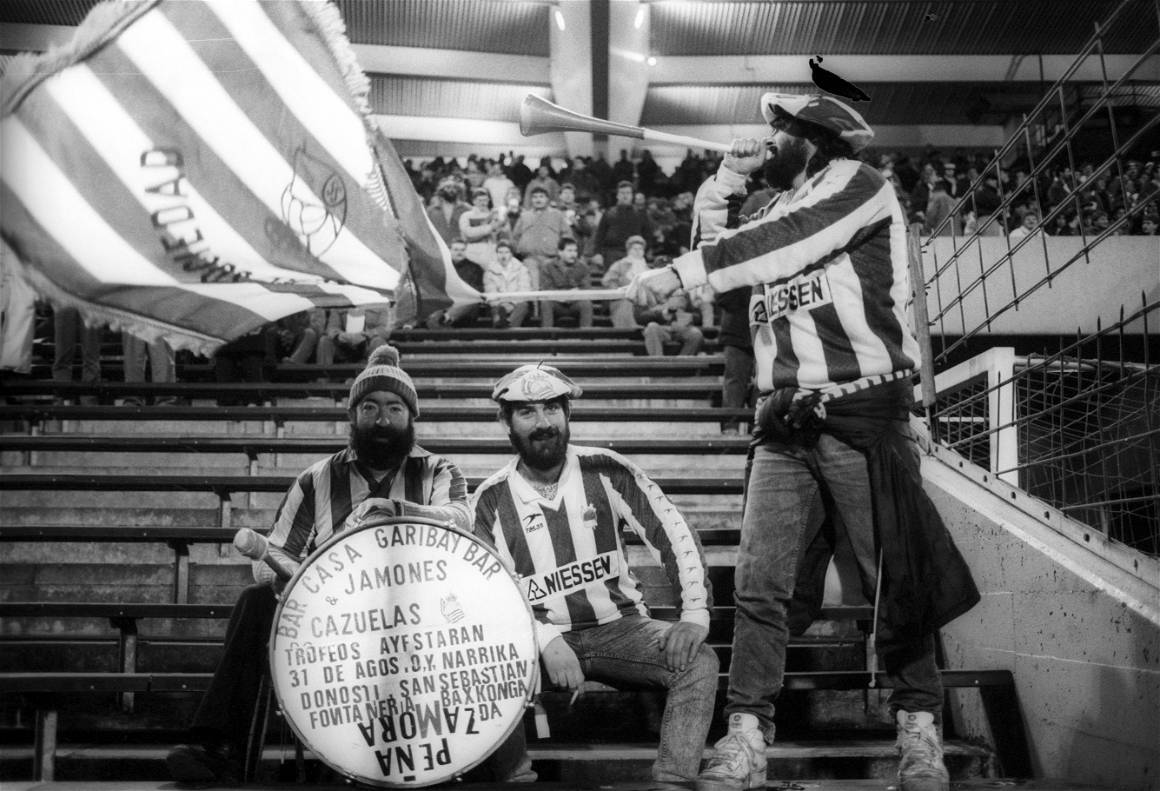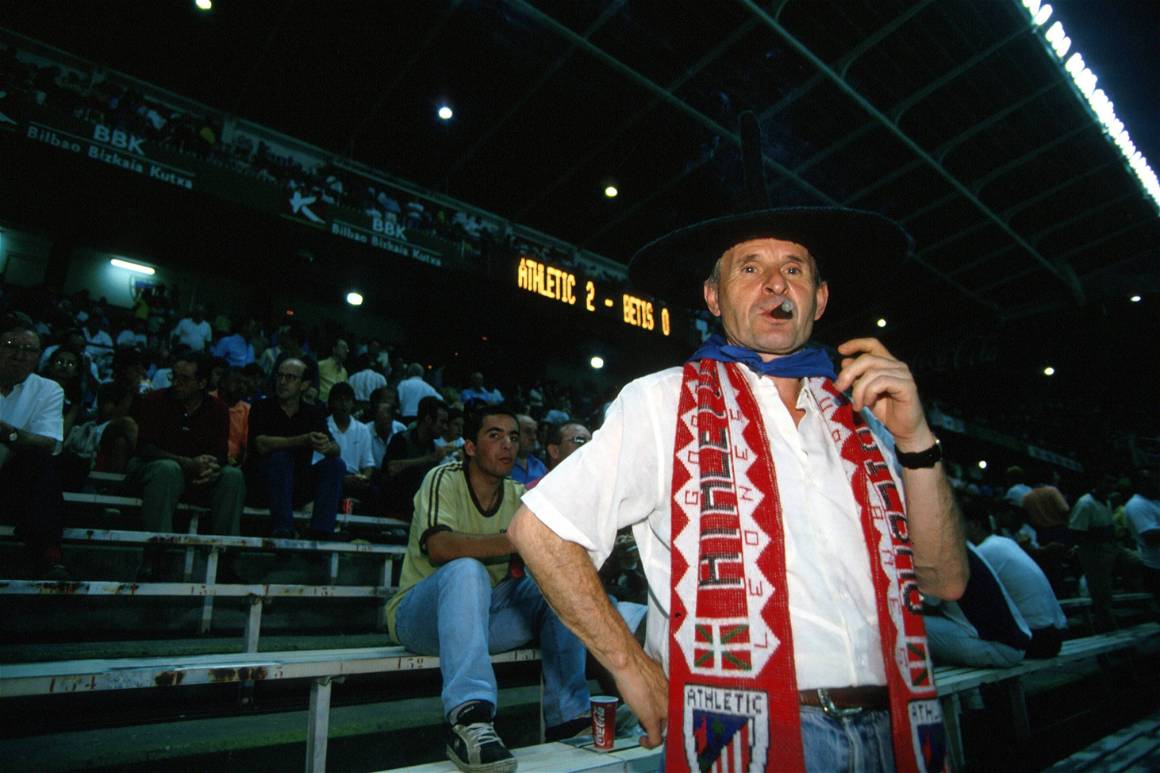This country within a country has long been the breeding ground for Spain’s top stars, but so fiercely proud are the Basque Country's two biggest club sides that they are unique in world football. The Game columnist Andy Murray explains how.
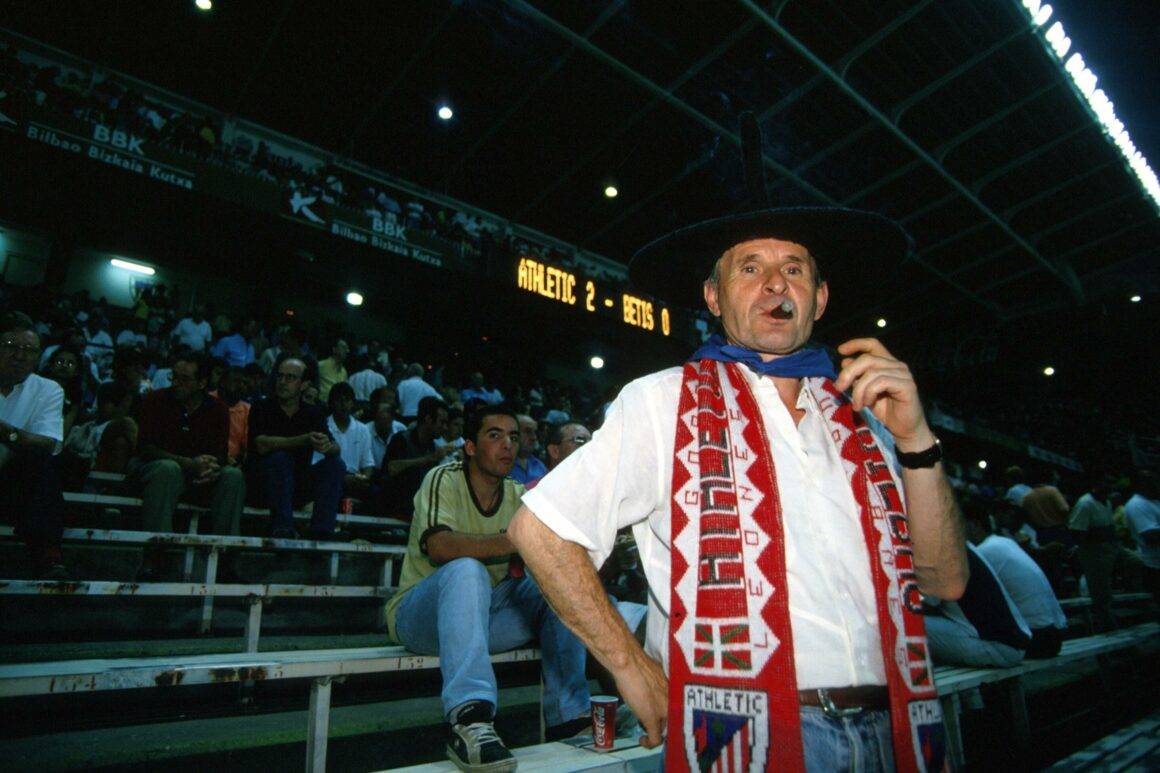
How the Basque Country Became the Hotbed of Spanish Football
Borders in Spain matter. The country offers significant powers of self-governance for the 19 autonomies who want it or simply acquiescing to Madrid for those who don’t. The Basque Country, emphatically, takes the first option. A country within a country hemmed in by the Pyrenees, this rugged region of northern Spain – which historically extends into parts of southern France – is fiercely proud and protective of its unique traditions, customs and language.
The Basques believe in their difference, and with good reason. The Basque language is gloriously (almost impenetrably) complex and though it has comparatively few words – around 200,000 compared with English’s 60 million – its vocabulary is greatly extended by nearly 200 suffixes. As an example, the verb iparsortalderatu means ‘to head in a north-easterly direction’. The European language it most closely resembles is Hungarian, and even then, there is little comparison.
The differences extend to the physiological, too. Research suggests its people have thicker skulls than average, while Basques have the highest concentration of type O blood in the world, accounting for about 50 per cent of its population.
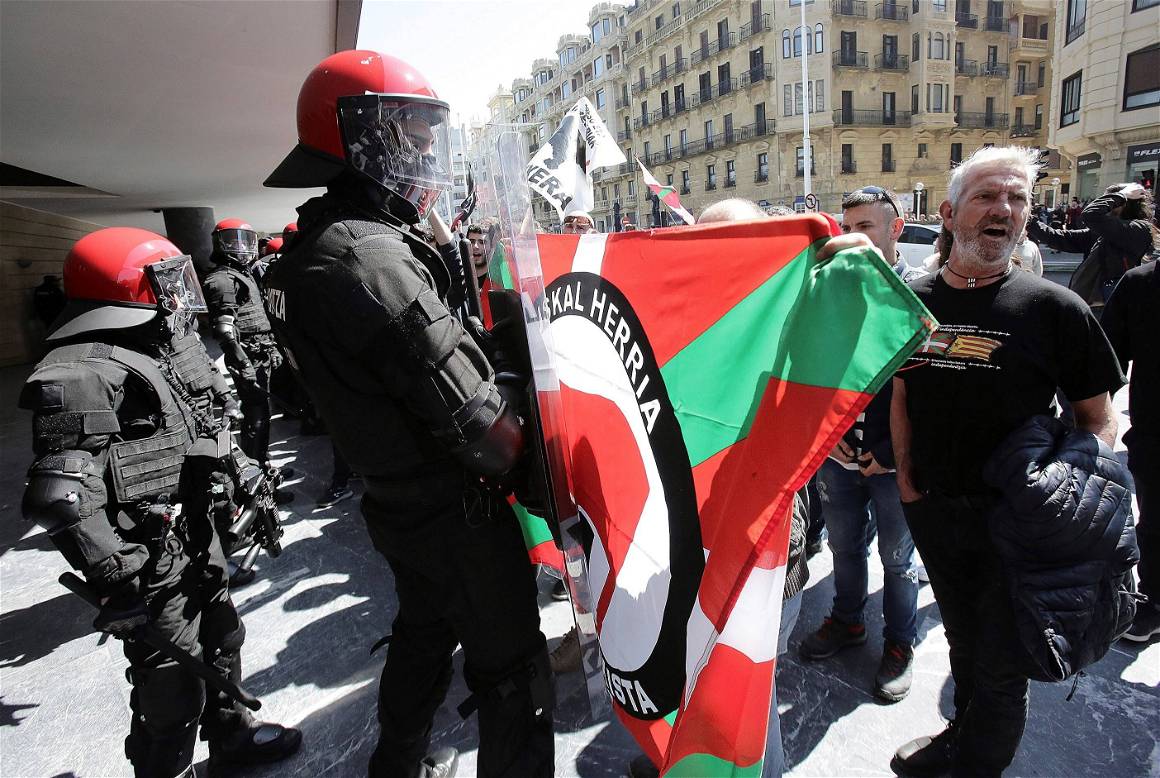
It is against this background that football in the region exists. Hardy, strong and jagged, the Basques have a reputation for producing footballers who reflect the region’s angular geography and tough population since the sport made its first steps onto the peninsula in the late 1898s. First played in Bilbao by British dock workers and middle-class students returning from studying abroad, football captivated local imaginations – some say because the participants on the staunchly conservative banks of the Nervión river would play shirtless.
“Who knows? Maybe one day everyone here will play this game,” declared confused reporter J Ugalde in local paper El Nervión after watching an early game, “it seems to arouse extraordinary curiosity.”
Formed in 1898, before Real Madrid and Barcelona, no team stirs the Basque blood like Athletic Bilbao. The region’s most successful club and Spain’s pre-eminent team before the 1936-39 Civil War, los Leones have become synonymous with the region through the club’s famous ‘Basques-only’ selection policy. No ‘Spaniard’, let alone a foreigner, has ever represented Athletic, with current rules saying players must either be Basque-born – or have a grandparent from the region – or predominantly trained in the region.
“Athletic Bilbao is more than a football club, it is a feeling,” wrote then president José María Arrate in the club’s centenary book. “It escapes rational analysis. We see ourselves as unique in world football and that defines our identity.”
Despite the obvious limitations of drawing from such a limited talent pool, the club’s philosophy of “con cantera y afición, no hace falta importación” – literally “with the youth team and fans, there’s no need for imports” – has helped Athletic punch above its weight. They have won La Liga eight times, 23 Copas del Rey and are the only team other than Real Madrid and Barcelona to have never been relegated from Spain’s top flight. Fans would genuinely rather go down than play a non-Basque.
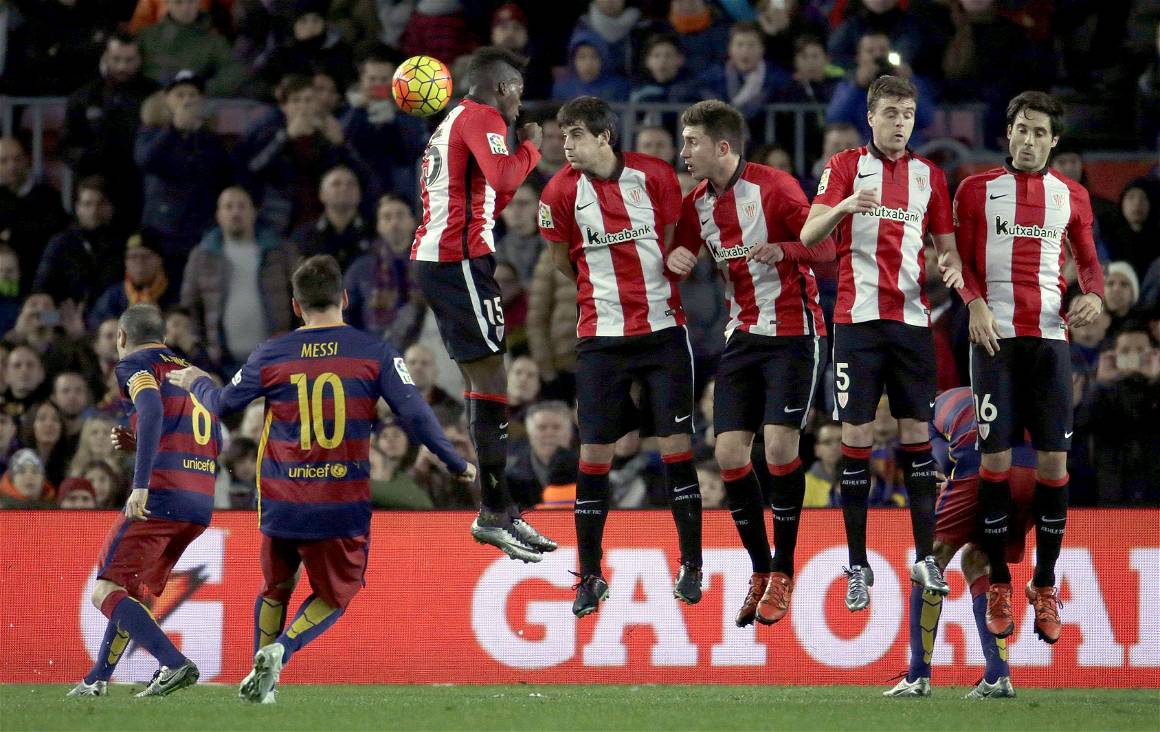
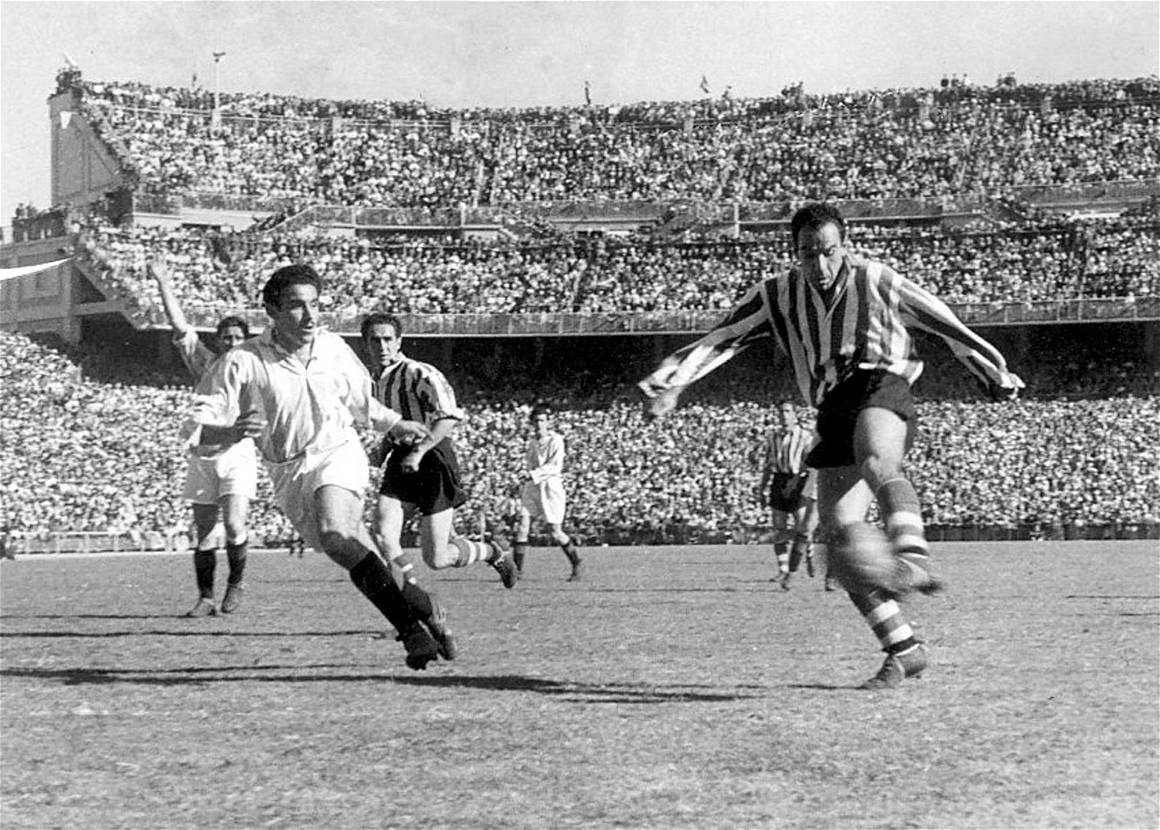
Athletic won four of the first eight Ligas from 1929. Los Leones’ triumphs were even more impressive when you consider that legendary striker Rafael ‘Pichichi’ Moreno – who scored 78 goals in 89 games for the club – died from typhus in 1922 aged just 29. To this day, the ‘Pichichi’ is awarded to la Liga’s top scorer in his honour, while teams playing at the club’s San Mamés ground for the first time lay a wreath of flowers at the foot of the forward’s commemorative bust. Telmo Zarra, meanwhile, was la Liga’s top scorer of all-time until Lionel Messi and Cristiano Ronaldo came along as Athletic won another title in 1942-43. Another la Liga win in 1955-56 was achieved under captain Piru Gaínza by a team nicknamed los once aldeanos, the 11 villagers, because the players all came from within Bilbao’s city limits.
Though such success has proven almost impossible to maintain – bar a spell under Javier Clemente from 1982 to 1984 – as money influences football more than ever, the pride felt among the Athletic support for its team is unwavering. So, too, its playing staff. Winger Joseba Etxeberria famously played the last of his 15 Athletic seasons for free in 2009-10. A current crop of Íñaki Williams – born in Bilbao to Ghanaian parents – Iker Muniain and Álex Berenguer are the latest
“Athletic are unique in world football,” believes José María Amorrortu, the club’s former director football responsible for nurturing the next generation. “Playing with Basque players brought up in the youth team, who have never tasted relegation, is an incredible achievement. People always ask me: ‘How do you do it? It all comes back to investment in youth, the feeling of the club and the desire to overcome difficulties together.
“It’s a question of identity. There has always been a tight link between Basque society’s values and the region’s football teams. It’s passed down from generation to generation. It generates a sense of belonging that means youngsters’ primary objective is to play football for and represent the region they’re from. It begins when they’re born
“There’s no great difference between Athletic and Real Sociedad. Each club’s culture is very similar and that’s reflected in the players they produce.”
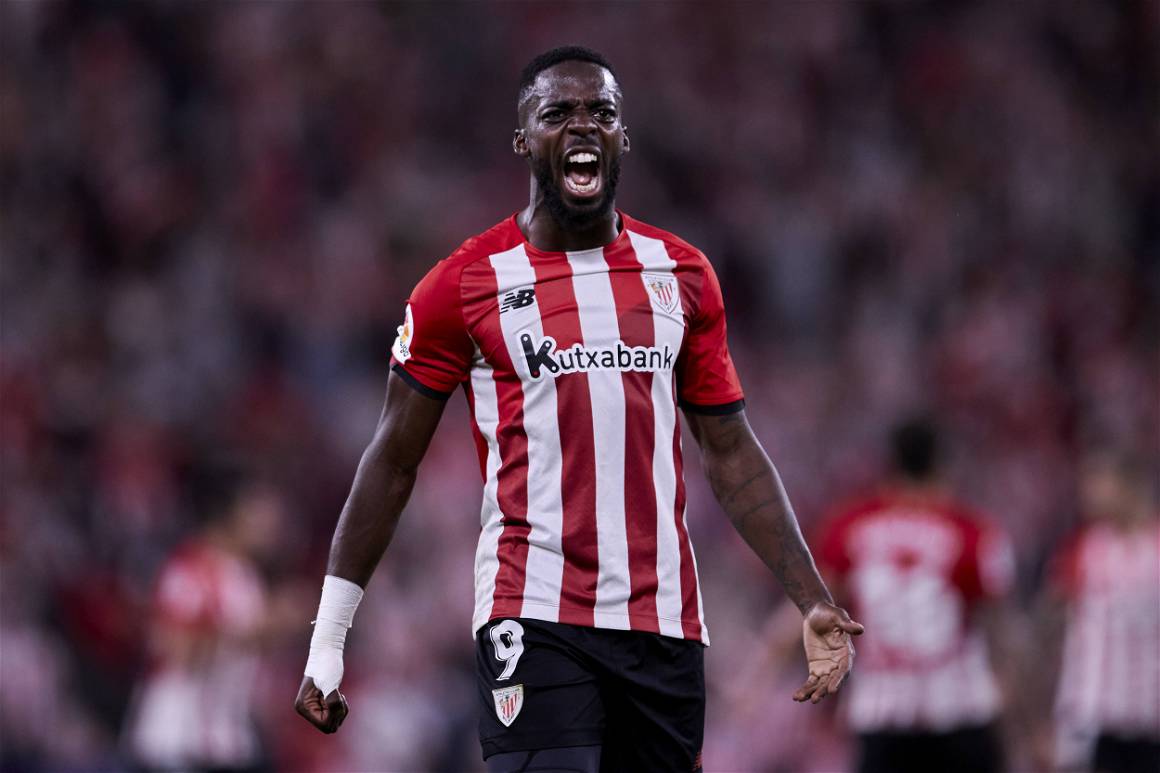
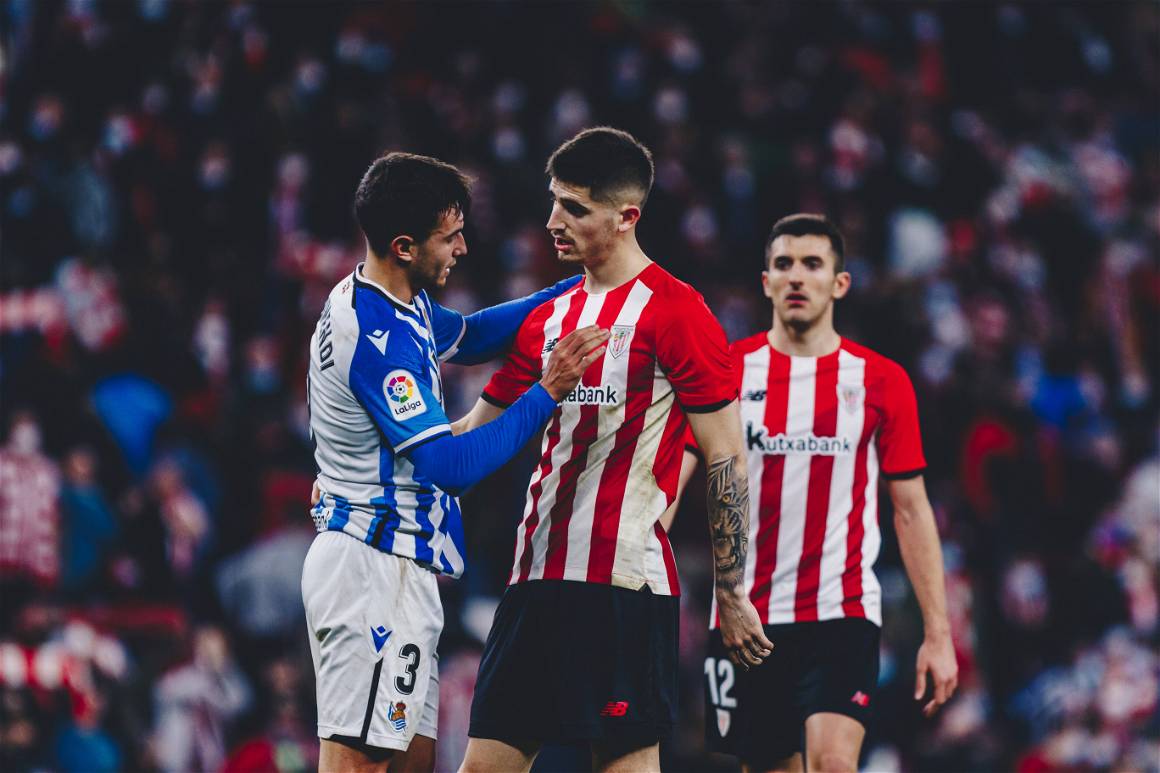
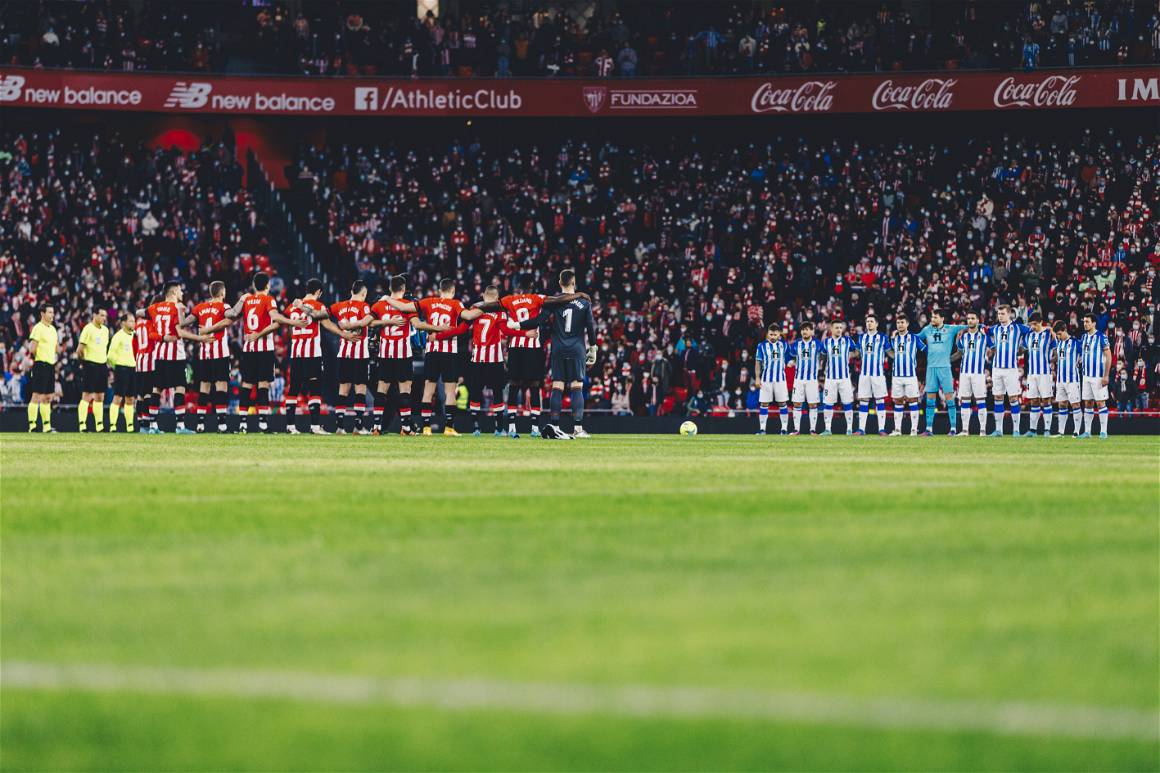
Real Sociedad are the region’s other primary team. Younger than Athletic by roughly a decade and a half, they are from the beautiful coastal city of San Sebastián, home to one of the great city centre beaches in Europe.
Between 1980-81 and 1983-84, the Liga trophy didn’t leave Euskadi, what locals call the Basque Country. In the first of those seasons, Real Madrid thought they had won the title – their game finished half an hour before Sociedad’s – but in the pouring rain at Sporting Gijón, Jesús María Zamora scored 12 seconds from time to clinch the point they needed to top the table. At the final whistle, some Sociedad players wept.
That triumph was so resonant because, a season earlier, Sociedad had gifted Real the league on the final day with a 2-1 defeat at Sevilla, their only defeat of the season. “I was freezing. The fans had come a long way and I thought we can’t blow it again,” recalled Zamora. “A miskick came straight to me and I didn’t think. I just clouted it.” Almost every San Sebastián bar has a photo on its wall of Zamora’s cocked right foot, about to win la Liga, a mass of umbrellas in the stands behind him.
Though never codified in the club’s constitution unlike their Bilbao rivals, la Real had predominantly adopted a Basque-only policy until the club, almost on a whim, signed the Irish international John Aldridge from Liverpool. Aldridge excelled, scoring 33 goals in 63 la Liga games, and it brought a number of further foreign imports from Serbian Darko Kovacevic to Turk Nihat Kahveci. Such a move brought its own controversy. While Athletic’s policy was a celebration of their identity, la Real’s had come to discriminate against nationalised Spaniards. In 2002, the signing of Sergio Boris – a centre-back from Real Oviedo with no Basque ancestry – ended any such policy at the club.
Athletic and Real Sociedad’s love for all things Basque means relations between the two clubs’ fans are unusually harmonious. Only when players such as Íñigo Martínez – who joined the former from the latter in 2018 – move between the clubs do relations get hostile, and even any invective is aimed at the specific players and never the club’s fans. The difference between the Seville derby between Sevilla and Real Betis couldn’t be starker.
Part of the reason for this is what happened to the region during General Franco’s fascist dictatorship of Spain from 1939 to 1975. Under Franco’s rule, the Basque language and local customs were banned, as football became a powerful outlet for regional pride. In December 1976, a year after Franco’s death, the Basque derby began with captains Ignacio Kortabarria and José Ángel Iribar carrying the Ikurriña, the region’s still-illegal green and red flag, into the centre circle.
“Democracy had yet to find a firm foundation and we were in a transition period with Basque people demanding change,” recalls Josean de la Hoz Uranga, the Sociedad midfielder who smuggled the flag into the ground. “A lot of people cried. There were about 16,000 spectators in Atocha and the stadium erupted.” It speaks volumes that Iribar – and Athletic fans – remember that game so fondly. They lost 5-0.
Rumours suggest that TV footage of this ceremonial defiance inspired disgruntled army captain Antonio Tejero to launch his (ultimately unsuccessful) attempted coup in 1981.
Politics and sport shouldn’t mix, apparently. Well, welcome to football and the Basque Country, the nation within a nation where they get along just fine.
